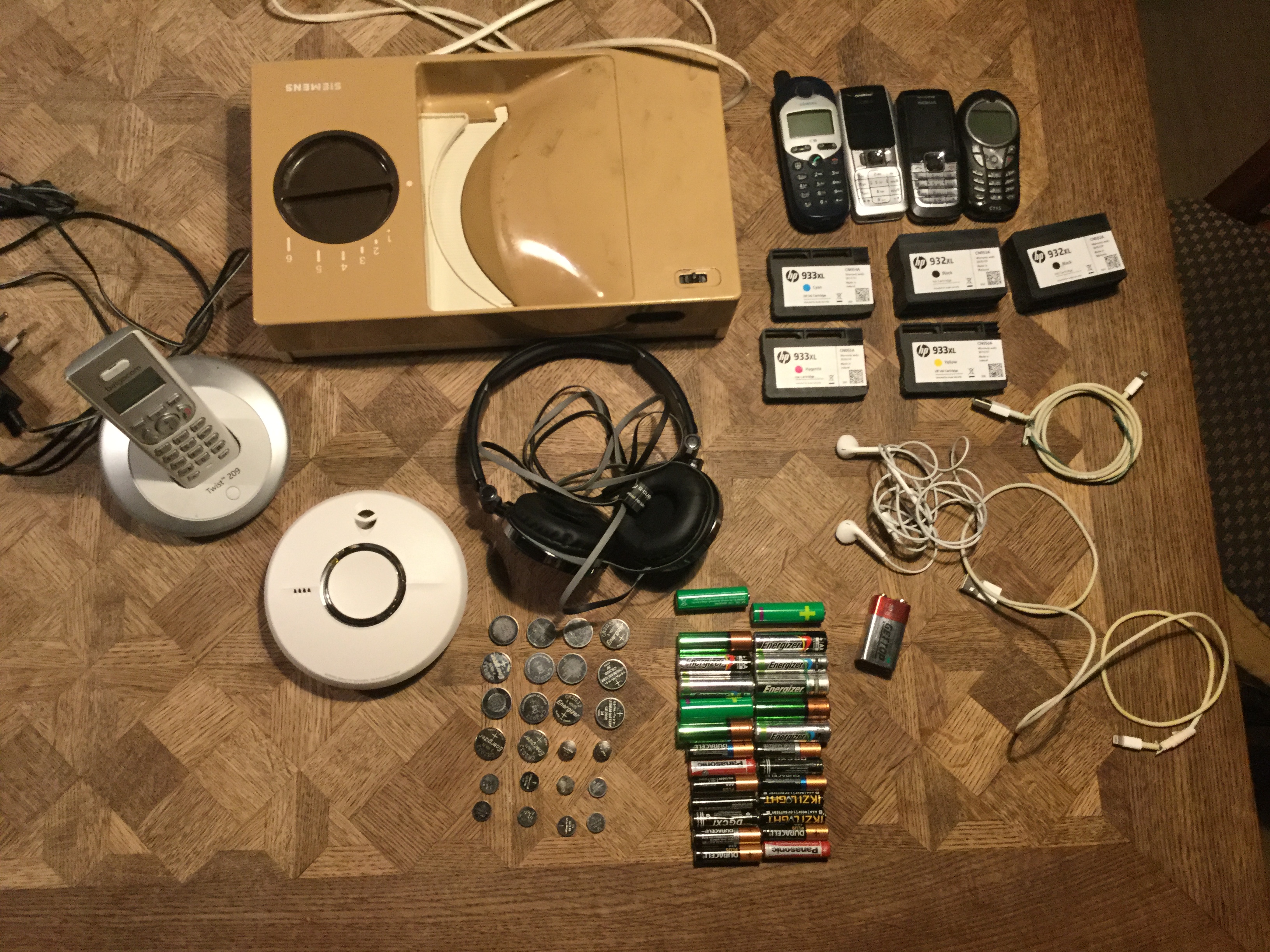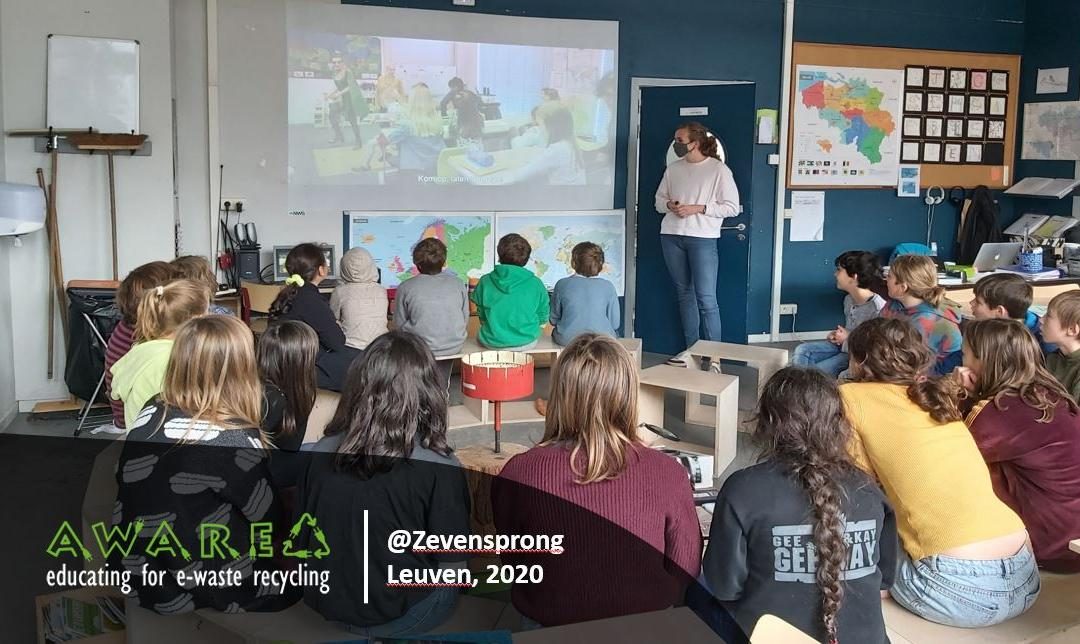The EIT RawMaterials AWARE project aims to raise public awareness about Waste Electronic and Electrical Equipment (WEEE). AWARE educates primary school children about the importance of recycling e-waste and re-integrating products into the circular economy. In this context, primary school students were taught through an interactive presentation that consisted of games, videos, and assignments. The school visit sparked interesting conversations with the new recycling heroes.
About AWARE
AWARE aims to raise public awareness of the rapidly increasing WEEE stream. The project aims to create a new generation of recycling heroes. This is done by educating students in primary schools, who in turn educate their parents and society as a whole about the importance of reintegrating e-waste into the circular economy. The overall aim is to reduce society’s footprint in terms of critical raw materials and to increase the recycling of WEEE.
Visiting the Zevensprong school in Leuven
To reach primary school kids, Rubia Korstanje and Katarzyna Janusz visited the Zevensprong school in the heart of Leuven (Belgium) to give a class to 40 motivated pupils. We were welcomed with open arms at this sustainability-oriented school [note from the editor: this school also took centre stage in kickstarting the (primary school) Kids-for-Climate movement in 2019].
An interactive class was given to provide the children with an insight into topics such as: definition of electronic appliances, e-waste, urban mines, the linear and circular economy, waste hierarchy etc. The pupils also learnt what to do to prolong the life of a device, and how to recycle their end-of-life devices.
The imagination of the school kids was sparked by showing them the videos of the AWARE recycling hero. Next to this, a game of ‘who am I’ was played in which they had to guess which device suited the description. On top of that, the kids had to identify electronic appliances in their own classroom and come up with recycling alternatives.
This triggered a lot of questions, like; wherein Leuven can we recycle our devices? Can we make a recycling point at school? How do you get the valuable items out of a phone? How long can we keep reusing valuable materials in the circular economy?
Take-home assignment
At the end of the classes, the school kids were given the following take-home assignment. They were encouraged to search for urban mines in their home, then to take a photo, and finally to bring the e-waste to a recycling facility nearby.
The aim of the assignment was to spark conversations at home about what e-waste is and to let the students practice being a recycling hero. As seen below, the interactive presentation did indeed skill a new group of recycling heroes!

Photo: E-waste collected at home by one of the school kids, following the workshop
Text: Written by: Rubia Korstanje – Intern at AWARE and student of the MSc Sustainable Development – Space and Society track at the KU Leuven.

